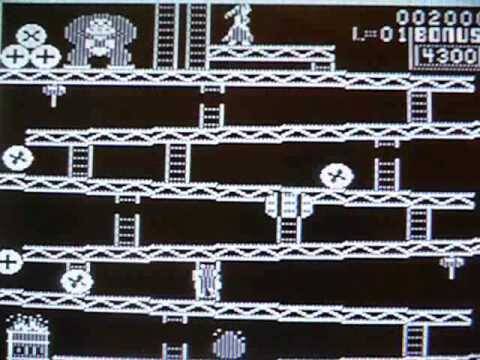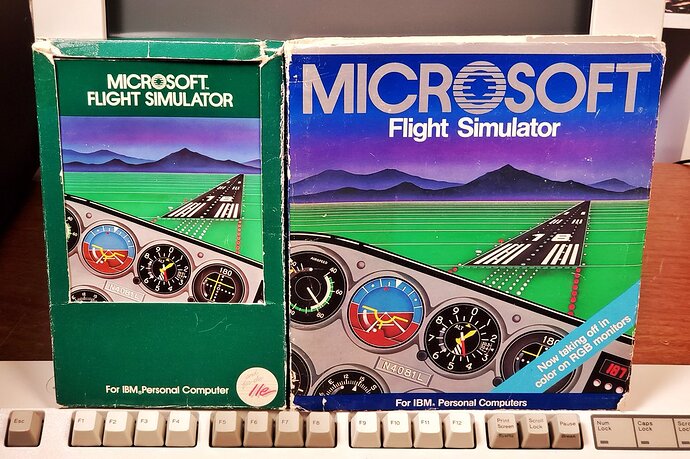Sound about like how long it took to install 2020.
I love this thread. I first came in touch with a personal computer in former Eastern Germany. It was called KC 85/4. KC stands for the German word Kleincomputer. Data was transfered per audio tape analog. We used to play a game called “Digger”. Man, it was a joy when we got some used Ataris or even a C64.
Well, you haven’t seen anything yet. What do you think about this “download” process: BASICODE - Wikipedia
“Around 1980 the Dutch broadcaster NOS began transmitting computer programs by radio”
Amazing, so many other countries stealing technology from US.
That is a very reminding photo, thanks for sharing.
…
O well, that is what all those US companies get. And they still do not protect their technology…
When a Chinese Fighter Jet looks almost “Exactly” like our F35, one would think that our industrial protection is not up to par… It is like Global Warming, Too Late Now !
ah now you are talking. Being audio it could be recorded. So there were computer programs on the TV and at the end they would transmit the program code for the program they had been discussing as a sound stream.
You would hang the microphone of your little portable computer by the speaker and record that sound stream. Then hook the recorder up to your Spectrum or BBC computer and play the tape. This, if you were lucky would load the program code lines into the computer.
Yup it all worked. As said, it was also done by radio.
At the time (80s) there was a complete ban from western countries on exporting computer chips of any kind to the USSR. You couldnt even sell them an Atari games console or a Spectrum.
The result of course was that it boosted the Russian computer industry enormously. Stuff would go via the diplomatic bags, (which arent actual bags and could be as big as containers) and were then reversed engineered.
The result was also that Russian programmers learned to write extremely economical code as the capacity of the chips they had was limited. It turned Russian programmers into the best in the World.
Here in the west we became lazy. Chips were getting bigger so more space, lines, could be used for simple things. Reading a listing now of a modern program it is amazing how totally wasteful they are in terms of space. But it doesnt matter now.
But Russians did amazing things in very small space.
They became amazingly skilled.
Of course some turned this skill into writing virusses and attaching these to the end of executables of actual programs. Such code additions had to be tiny so to pass checksum testing etc.
There will always be those of course.
for those oldies reading this watch this ![]()
Amazing and interesting info, thanks for sharing that with us.
And if you did your best, you could tune into ‘piracy’ stations.
It all started with one of these for me:
A Dragon 32 (it had 32Kb RAM), complete with an 8-bit MC6809E processor running at 0.89MHz. It had maximum screen resolution of 256x192 monochrome and software was loaded with the classic cassette tape method. Donkey King was the game of choice when I was about 16…

One simple Basic program of old has survived to this day. It is actually extremely simple to write
but folks love it. Basically the screen becomes a large checkerboard. A snake consisting of maybe 5 blocks starts to move and never stops.
Elsewhere on the screen a square lights up. With the cursor keys you must move the head of the snake onto the highlighted square. This square will now be added to the length of the snake.
The snake never stops and as you gobble up squares the snake gets longer and longer. There is one simple rule; the game will stop if the head of the snake ‘eats’ its own tail or hits the sides of the screen.
It sounds silly but I see people play this on their tablets and phones all the time.
Very simple to write but entertaining.
I betcha you can still download a snake game from the Play store.
But it started its life many years ago as a simple black and white basic game.
(wish I had thought of it myself  )
)
or work there if you had sea legs !
Called SNAFU I believe - used to play it on an old Apricot computer when I had a summer job in local government

This was long before anyone in business realised that they needed to worry about people playing on their computer rather than doing work…
Now taking off in color. Well ain’t that something right there lol!!!
Off topic but my dad had a franchise for Commodore, particularly business machines and so good was his support it became the leading brand on the Isle of Man where we lived so it was little surprise when Commodore invited him over to the States and gave him the full hospitality treatment before selling him hundreds of their latest machines at a great discount… a week later they went bust.
It all but ruined him but little bro Malcolm was in heaven as he had an endless supply of 64’s and with much wizardary could somehow link them to produce much more powerful systems. When he eventually enrolled in the UK’s top computer college he was so far more advanced than their so called professors that he unsurprisingly dropped out for a career in music and many of his subroutines became wrote for future generations. Unfortunately drugs got him in the end.
I always love these nostalgic posts on FS. It really shows how far we have gone in terms of technology, yet also shows how far we have gone “backwards” in other areas such as documentation.
FS2: 2 detailed manuals, and flight charts
FS2020: what’s a manual?
That’s been common for a long time. When I bought Apache: Longbow 2 it came with an inch thick ring-bound manual. Nowadays you’d be lucky to get that as a PDF.
This thread is bringing back so much nostalgia (and a few nightmares of accidentally saving over the top of a game).
The boxed version of MSFS sort of comes with a manual although nothing like the ones you used to get with MicroProse games like F-19 or Silent Service II.
I built my system with 32GB of RAM and love the performance. Yours must be Awesome.
![BASIC Programming on Old Computers [Discharge] | Nostalgia Nerd](https://img.youtube.com/vi/vmjJiH5bRQk/maxresdefault.jpg)





